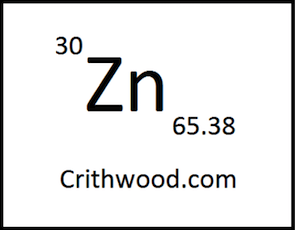
Curated with aloha by
Ted Mooney, P.E. RET

The authoritative public forum
for Metal Finishing 1989-2025

-----
High heat resistance powder coating
Current question and answers:
Q. I have read that the highest temperature that Powder Coating can endure generally is 550 °C. I have some parts that will take the direct heat off of a variety of heat sources including engines that operate between 600-800 °C. Do I have to skip the idea and move instead to ceramic coating? I have seen one that can take over 1000 °C in the UK.
Please let me know as soon as possible as I am in the midst of a project and need to make a decision soon.
- Monaco, MC
April 22, 2021
A. Hi Ray. Read on and it sure looks like ceramic coating it should be :-)
Luck & Regards,

Ted Mooney, P.E. RET
Striving to live Aloha
finishing.com - Pine Beach, New Jersey
April 2021
The term "Powdercoating" describes a means of application of a coating rather than the material coated onto a substrate. Many different polymers can be used to powder-coat things, mostly metals but also some timbers.
The coating is usually heat cured, typically at 200 °C or thereabouts. The coating is then not a heat proof coating, and one of the methods of removal of it, it to "burn" it off in a pyrolysis oven, often at about 450 °C. At this temp, most powder applied coatings turn to dust, and fall off.
So if you want to use your coated item at 600 °C as mentioned, powder applied coatings are not the right route.

Geoff Crowley, galvanizing consultant
Crithwood Ltd.
Bathgate, Scotland, UK

April 29, 2021
⇩ Related postings, oldest first ⇩
Q. I am looking for a high heat resistant powder coating, preferably around 1300 °F (700 °C). I have been told that there is no such powder coating available, is this true?
Allen BurbankPowder Coatings - Raleigh, North Carolina, U.S.
2003
A. Yes, this is true. Up to 400 - 450 °C is possible with thermosetting powders. The only possibility would be to use enamel powder coating.
Good luck,

Remmelt Bosklopper
- Enschede, The Netherlands
2003
A. Hi Allen. I think you would need to flame spray a porcelain/ceramic coating for that kind of temperature resistance.
Regards,

Ted Mooney, P.E.
Striving to live Aloha
finishing.com - Pine Beach, New Jersey
2003
Q. To whom it may concern,
I am a student of the Faculty of Technology and Metallurgy, Belgrade (Serbia), Department of Organic Chemical Technology and Polymer Engineering.
I have to do seminar work about heat resistant coating, up to 600 °C. I would appreciate it if you could give me some information about it.
Your faithfully,
- Belgrade, Serbia
2006
A. Hi Nikola. Some high temperature paints might do if this is maximum and short term. But ceramic coatings become more and more appropriate as temperatures get higher because they don't contain plastics/solvents/organics. Good luck.
Regards,

Ted Mooney, P.E.
Striving to live Aloha
finishing.com - Pine Beach, New Jersey
2006
Multiple threads merged: please forgive chronology errors and repetition 🙂
High temperature PVC for Powder Coating
Q. Hello all,
I'm looking for a high temperature PVC powder that can withstand short term (1 min) temperatures of 1000 °F, everything I've come across will break down at short term temps over 500 °F. Has anyone ever seen anything like this?
Thanks
- Agawam, Massachusetts, USA
November 8, 2012
A. Hi Andrew.
Why PVC instead of a higher temperature polymer?
Regards,

Ted Mooney, P.E.
Striving to live Aloha
finishing.com - Pine Beach, New Jersey
November 12, 2012
|
|
A. Silicone powder coatings withstand temperatures up to 1200 °F for a short while. Anna Telk- Berlin, Germany First of two simultaneous responses -- November 14, 2012 A. PVC will not withstand 1000 degrees! Trainer - Salamander Bay, Australia Second of two simultaneous responses -- November 14, 2012 |
![]() Thanks for the input so far. We currently use a polymer adhesive but it would be more economically beneficial for us to use a powder coating, rather than the 2 layer primer/polymer system we use now. I have seen TPO powders that work at these temperatures which is why I thought there may be a PVC solution out there.
Thanks for the input so far. We currently use a polymer adhesive but it would be more economically beneficial for us to use a powder coating, rather than the 2 layer primer/polymer system we use now. I have seen TPO powders that work at these temperatures which is why I thought there may be a PVC solution out there.
I will definitely look into the silicone coatings.
- Agawam, Massachusetts, USA [returning]
November 27, 2012
A. If you want high temperature for a short length of time you'll need a silicone polyester coating. This is what is used on things like stove pipe.
Ronald ZeemanCoil coating - Brampton, Ontario, Canada
December 8, 2012
----
Ed. note: Readers of this thread may be interested in topic 22541, "Ceramic Coating vs. Powder Coating vs. Ceramic-powder Coating".
Q, A, or Comment on THIS thread -or- Start a NEW Thread